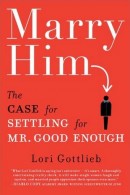A weekly roundup of noteworthy reviews from other sources.
 Diane Johnson reviews five recent books about trends in marriage and the ways women think about it. (“The relentless use of ‘I’ suggests that what may have been lost in the solipsism of recent American culture is an elementary sense of others, male or female. But it’s also possible that this is merely a correction, and that a touch of egotism and sense of entitlement, too lacking in poor, plain Jane Eyre, represents a healthy rebalance, egotism to be apportioned equally between the two sexes.”) . . . Rebecca Newberger Goldstein writes about the soon-to-be-reissued The Brothers Ashkenazi, a novel by Israel Joshua Singer, the older brother of Isaac Bashevis Singer. Goldstein says, “[The novel’s] ambition and its range were unprecedented in Yiddish literature.” It was first published in English in 1936, at which time it went to the top of the bestseller list. . . . Janis Lull reviews a collection of prefaces to Shakespeare’s plays. (“This is probably the last book about Shakespeare. Or rather, it’s the last book about ‘Shakespeare,’ as he used to be presented in Anglo-American criticism.”) . . . Maggie Gee strongly recommends The Old Spring by Richard Francis (which, it seems, is only available from the UK at the moment). Following one day in the life of a pub, “this is that rare and technically demanding thing, a novel of conversation, like Ivy Compton-Burnett’s.” Gee concludes: “This is a small classic – a slim book of deep but intimate ambition, a record of the beauty and strangeness of small lives on a small island, where there is more than one kind of profit and loss.” . . . Peter Lewis calls a new history of five immigrant families, who all lived in the same New York tenement, “illuminating, rangy, and wonderfully atmospheric.” . . . Honoria St. Cyr, in reviewing a new collection of scholarly essays about the Edwardian era, wonders how the remembrance of golden ages clashes with more complicated reality.
Diane Johnson reviews five recent books about trends in marriage and the ways women think about it. (“The relentless use of ‘I’ suggests that what may have been lost in the solipsism of recent American culture is an elementary sense of others, male or female. But it’s also possible that this is merely a correction, and that a touch of egotism and sense of entitlement, too lacking in poor, plain Jane Eyre, represents a healthy rebalance, egotism to be apportioned equally between the two sexes.”) . . . Rebecca Newberger Goldstein writes about the soon-to-be-reissued The Brothers Ashkenazi, a novel by Israel Joshua Singer, the older brother of Isaac Bashevis Singer. Goldstein says, “[The novel’s] ambition and its range were unprecedented in Yiddish literature.” It was first published in English in 1936, at which time it went to the top of the bestseller list. . . . Janis Lull reviews a collection of prefaces to Shakespeare’s plays. (“This is probably the last book about Shakespeare. Or rather, it’s the last book about ‘Shakespeare,’ as he used to be presented in Anglo-American criticism.”) . . . Maggie Gee strongly recommends The Old Spring by Richard Francis (which, it seems, is only available from the UK at the moment). Following one day in the life of a pub, “this is that rare and technically demanding thing, a novel of conversation, like Ivy Compton-Burnett’s.” Gee concludes: “This is a small classic – a slim book of deep but intimate ambition, a record of the beauty and strangeness of small lives on a small island, where there is more than one kind of profit and loss.” . . . Peter Lewis calls a new history of five immigrant families, who all lived in the same New York tenement, “illuminating, rangy, and wonderfully atmospheric.” . . . Honoria St. Cyr, in reviewing a new collection of scholarly essays about the Edwardian era, wonders how the remembrance of golden ages clashes with more complicated reality.

